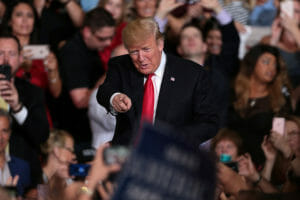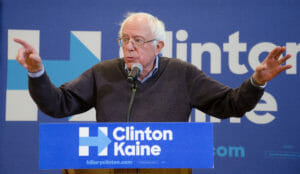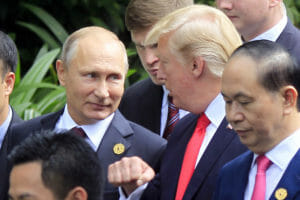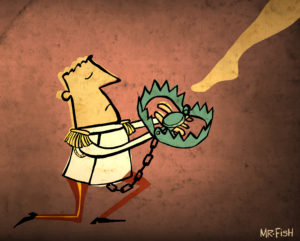Seeing Presidential Privilege Through a Partisan Lens
The looming showdown over subpoenas and presidential privilege is as insincere as it is distracting. How quickly politicians forget their rock-hard principles when applying them to another administration. The politicization of the justice system is a real scandal -- one that demands an open inquiry.WASHINGTON — The senator vigorously rejected the president’s claim of executive privilege. “I find this extraordinary and troublesome,” he said, “and I think it will ultimately be damaging to the president. … This is an attempt to stonewall our committee, and the public will be outraged.”
Doesn’t that sound like one of those tough statements by Sen. Charles E. Schumer of New York, the Democratic point man on the U.S. attorney scandal? The speaker was actually the Republican Schumer defeated nine years ago, Alfonse D’Amato, discussing Bill Clinton’s invocation of executive privilege in the Whitewater investigation.
So many principles that Republicans held dear when they were trying to take Clinton down are no longer operative. This certainly applies to a 1998 column now whizzing around the Internet that ran under the headline “Executive Privilege is a Dodge.” It was written by Tony Snow, who is now Bush’s press secretary.
To investigate Clinton — even his Christmas card list — was God’s work. To investigate Bush is “to head down the partisan road of issuing subpoenas and demanding show trials,” as the president put it this week.
Bush is nothing if not shrewd. By trying to recast the controversy as a partisan catfight, the president has temporarily diverted attention from the central issues in this inquiry: whether any of the eight fired U.S. attorneys were asked to step down for political reasons; whether political aides in the White House played an important role in the firings; and whether replacing independent-minded prosecutors was a way of influencing ongoing or future investigations.
In the broadest sense, this is about whether the Bush administration has illegitimately politicized the justice system.
Bush knows something else: The Washington conventional wisdom machine always defines “fairness” as a carefully calibrated point exactly between the positions of the two parties, no matter how outrageous one of the positions might be. By making ludicrous demands on Congress — that it accept interviews with White House advisers Karl Rove, Harriet Miers and others in secret, not under oath and without transcripts — Bush will encourage supposedly moderate voices to call for “compromises” that are really administration victories.
Bush’s demands are absurd because without a transcript, there is no efficient way to check versions against each other or to hold officials to account for what they say. Without putting them under oath, there is no way of making sure they tell the truth.
Had the administration been candid from the beginning, it might be possible to trust administration officials in informal sessions. But even Bush conceded that the information given to Congress was “confusing and in some cases incomplete,” his sanitized way of acknowledging that Congress had been misled. The administration has repeatedly changed its story, retracting earlier statements as it put out documents — we don’t even know how complete they are — that flatly contradicted some of its previous claims.
You don’t have to be paranoid or partisan to wonder whether the administration’s stumbling is the result of something more than incompetence. Is the U.S. attorney scandal actually a small part of a larger story about how politicized the Justice Department has become over the last six years? That is the more important question.
In The Washington Post on Thursday, for example, the leader of the Justice Department team that prosecuted a landmark lawsuit against tobacco companies said political appointees ordered her to take steps that weakened the government’s case. What happened here?
On Wednesday, Fred Wertheimer, president of Democracy 21, a campaign-finance reform group, wrote Attorney General Alberto Gonzales, asking whether “adequate resources are being made available to investigate” the remaining issues in the Jack Abramoff corruption scandal “in a timely and effective manner.”
The question is whether there’s a slowdown in a case that could affect members of Congress and other government officials. Last month, Legal Times reported that “the investigation has been beset by the high turnover of prosecutors and supervisors in the two sections running the probe, both of which have operated without a permanent leader for more than a year.” What’s happening here?
And then there are the voting rights cases in Georgia, Texas, Arizona and Mississippi in which political appointees overruled career lawyers. What happened here?
There may be innocent answers to all these questions, but they need to be asked. The administration should not be allowed to turn attention away from substantive issues by pretending that this is only a “partisan” battle over “subpoenas” and “show trials.”
E.J. Dionne’s e-mail address is postchat(at symbol)aol.com.
© 2007, Washington Post Writers Group
Your support matters…Independent journalism is under threat and overshadowed by heavily funded mainstream media.
You can help level the playing field. Become a member.
Your tax-deductible contribution keeps us digging beneath the headlines to give you thought-provoking, investigative reporting and analysis that unearths what's really happening- without compromise.
Give today to support our courageous, independent journalists.







You need to be a supporter to comment.
There are currently no responses to this article.
Be the first to respond.